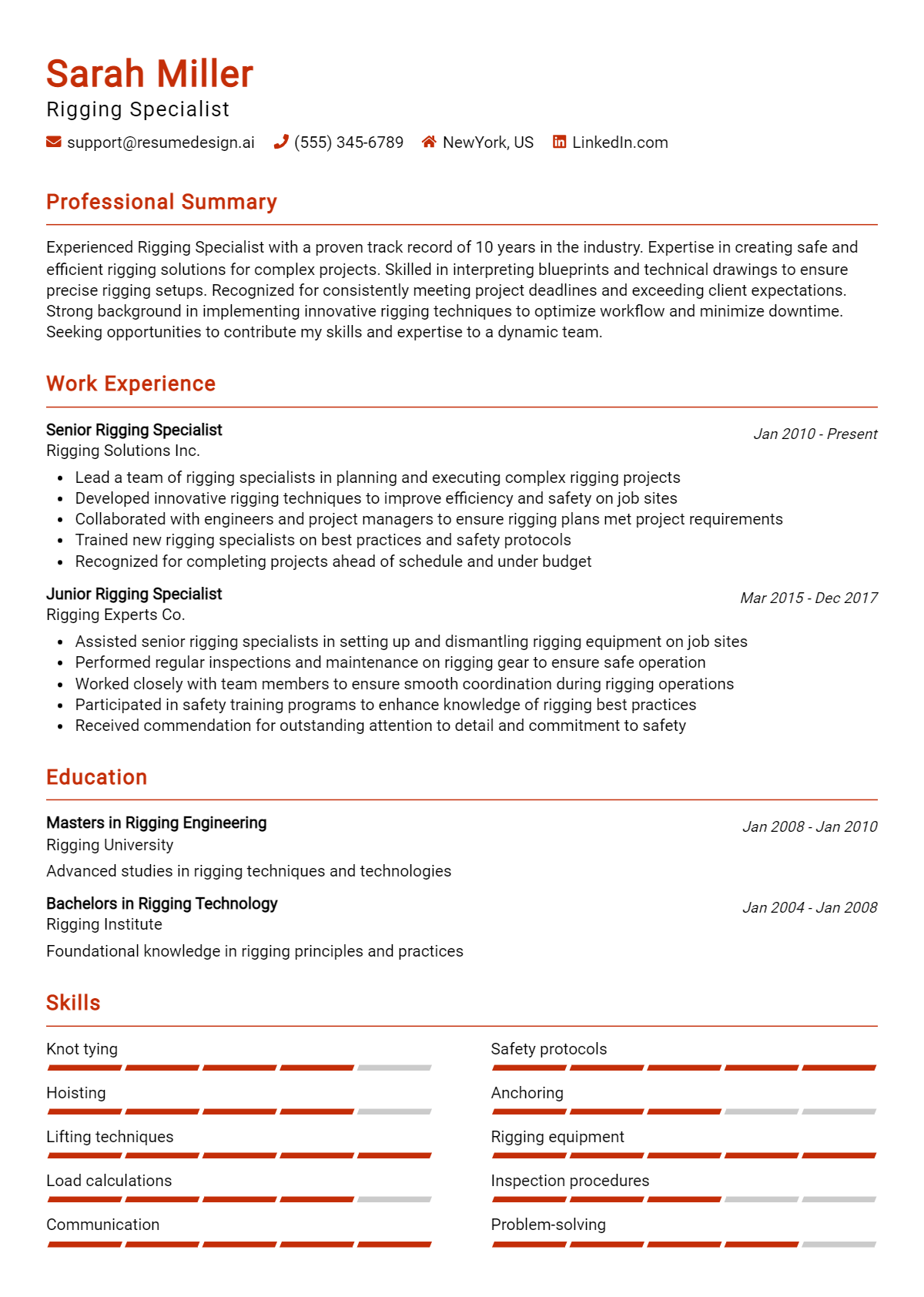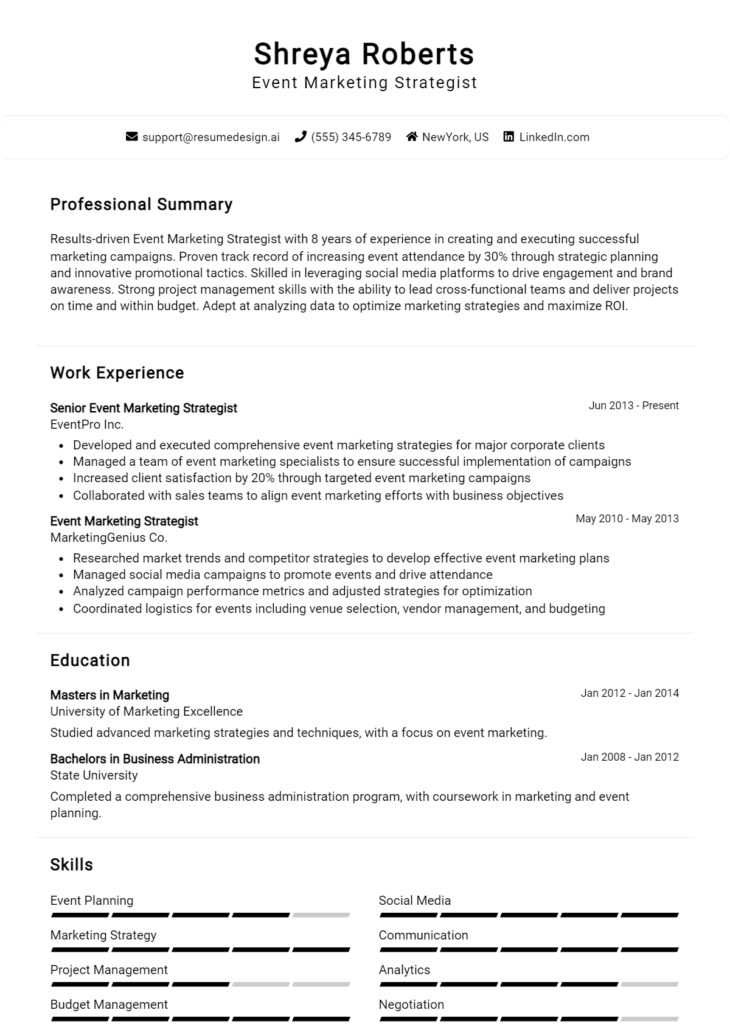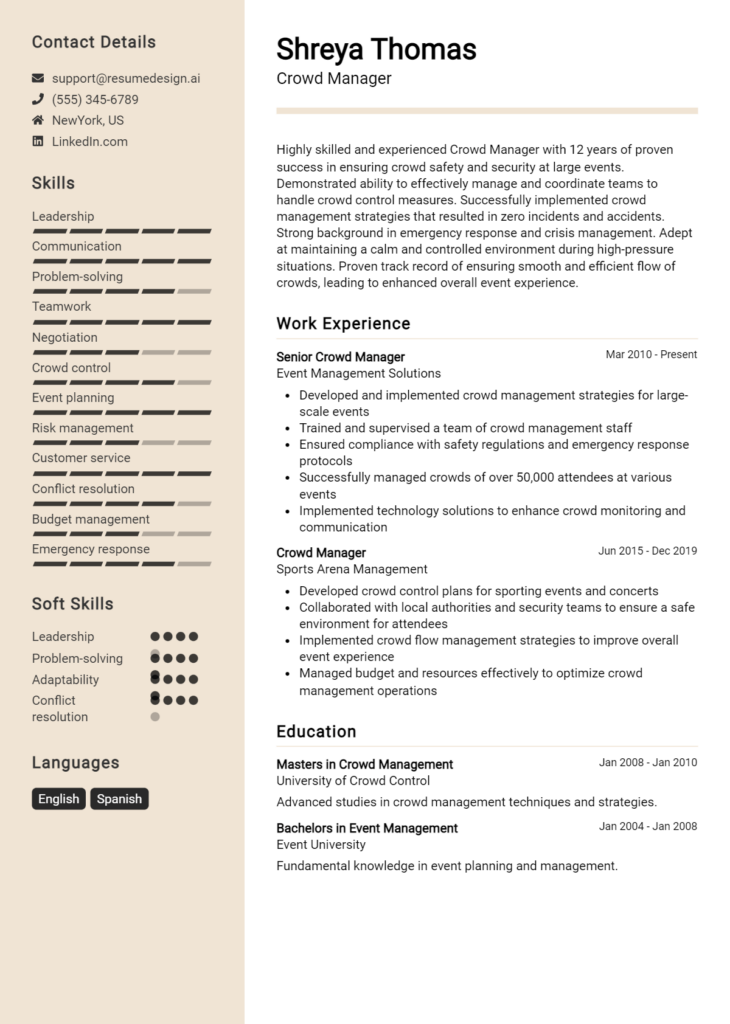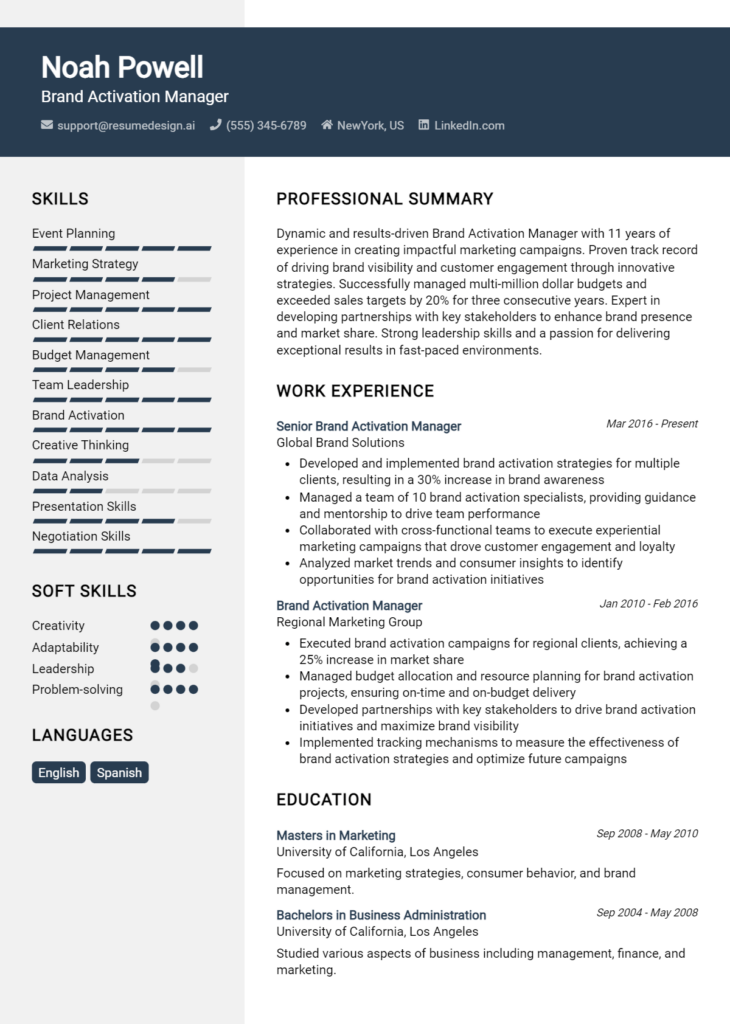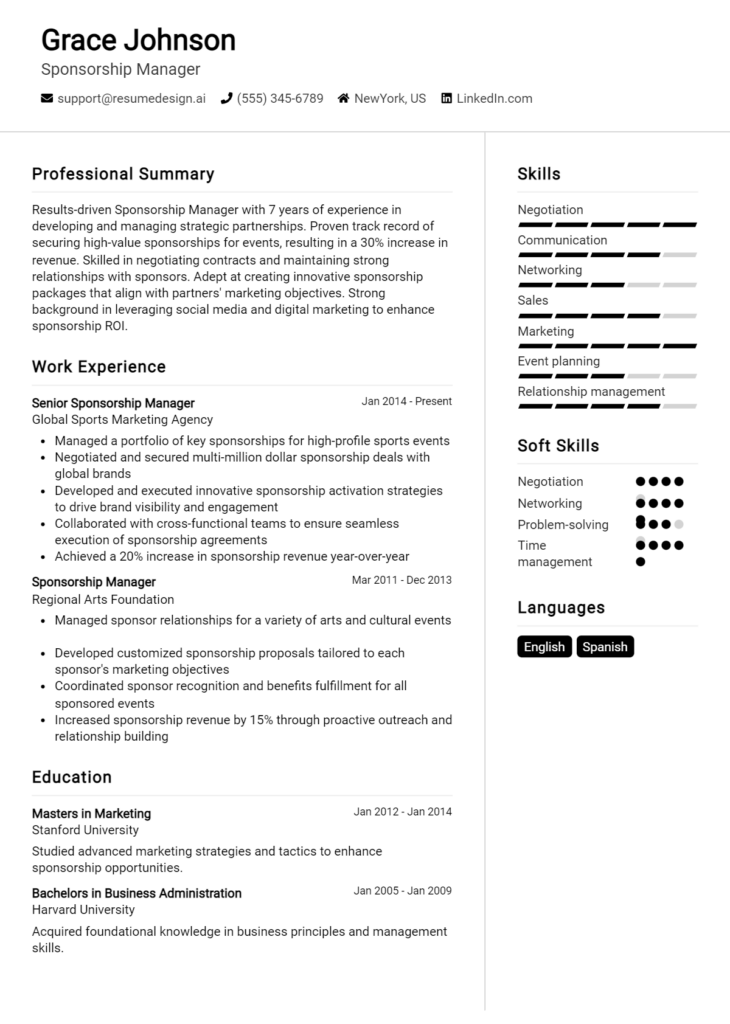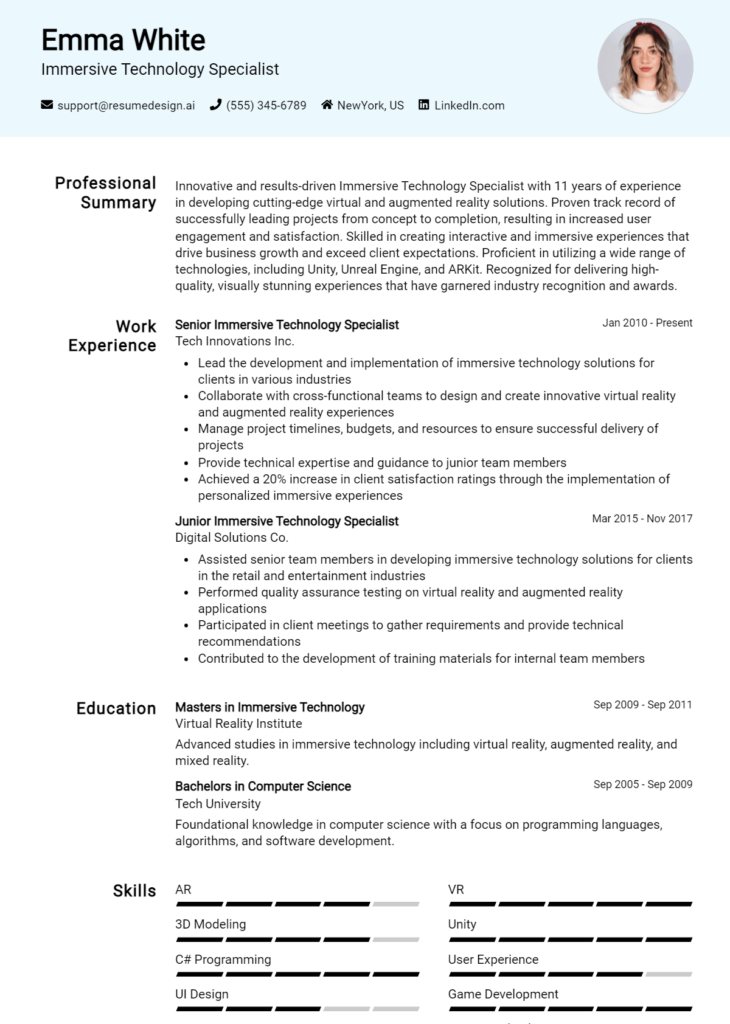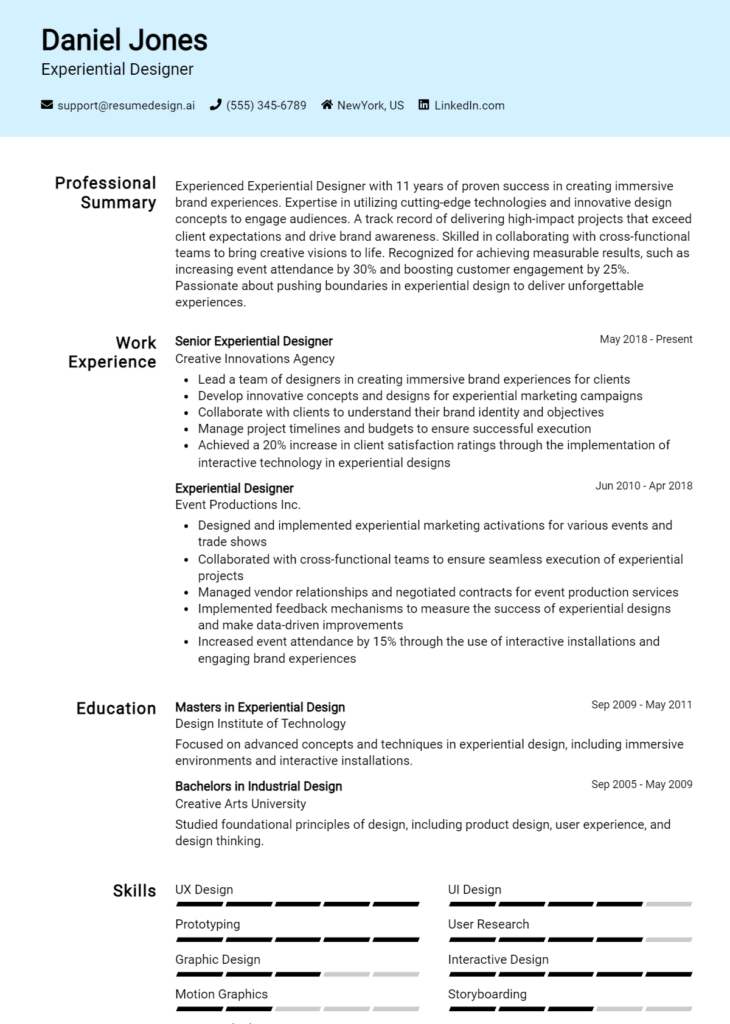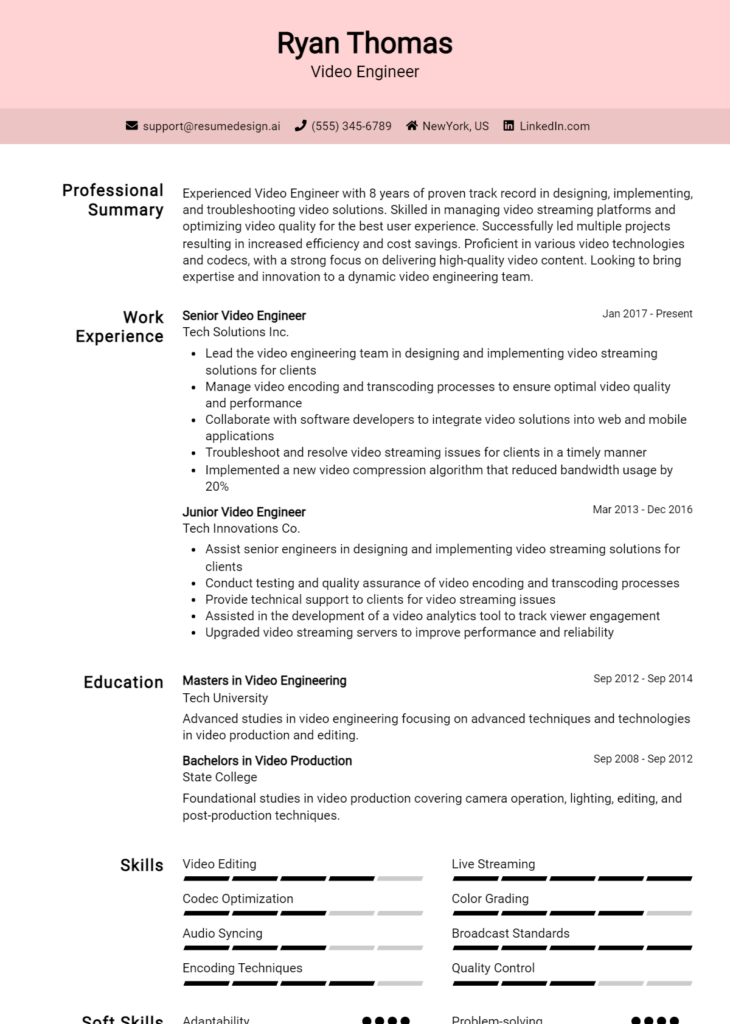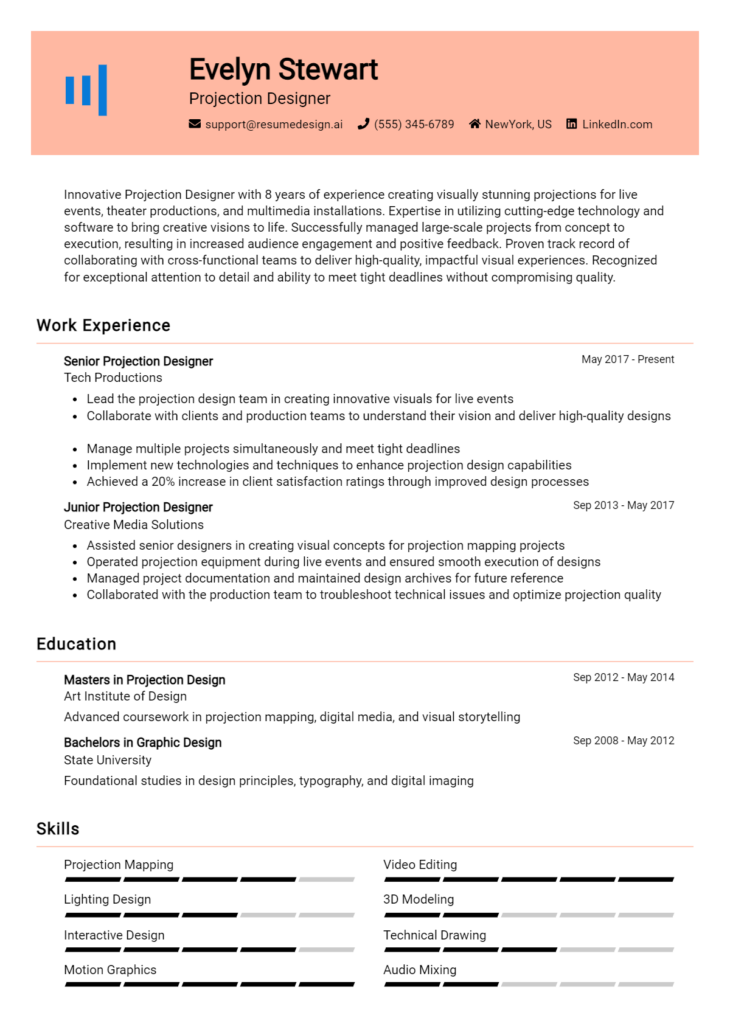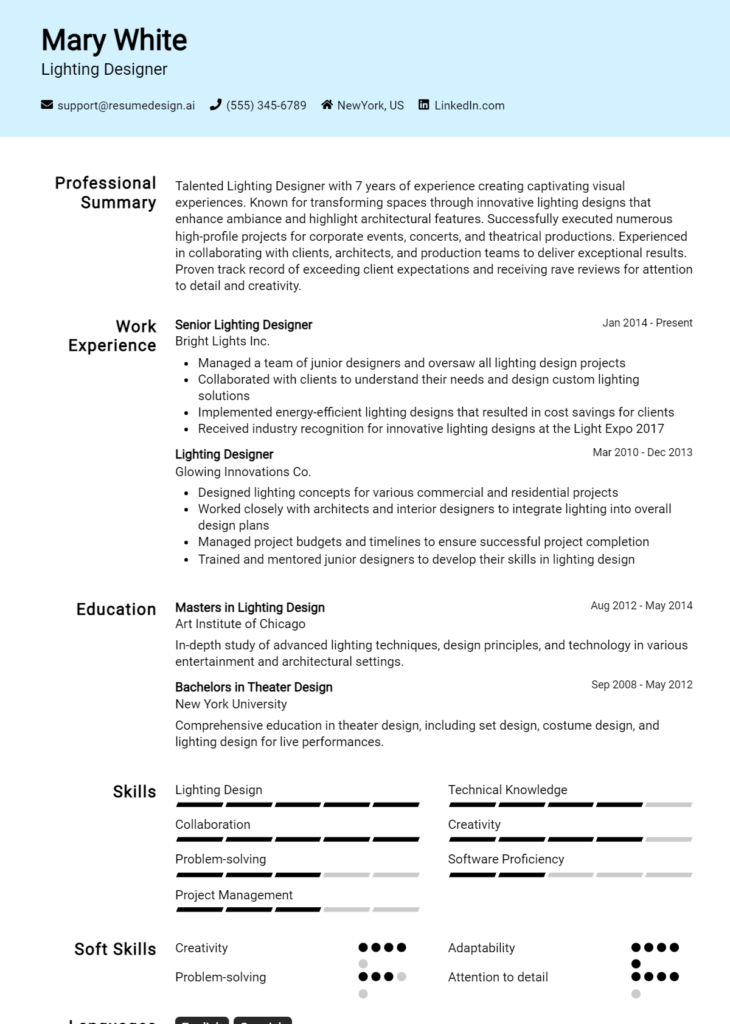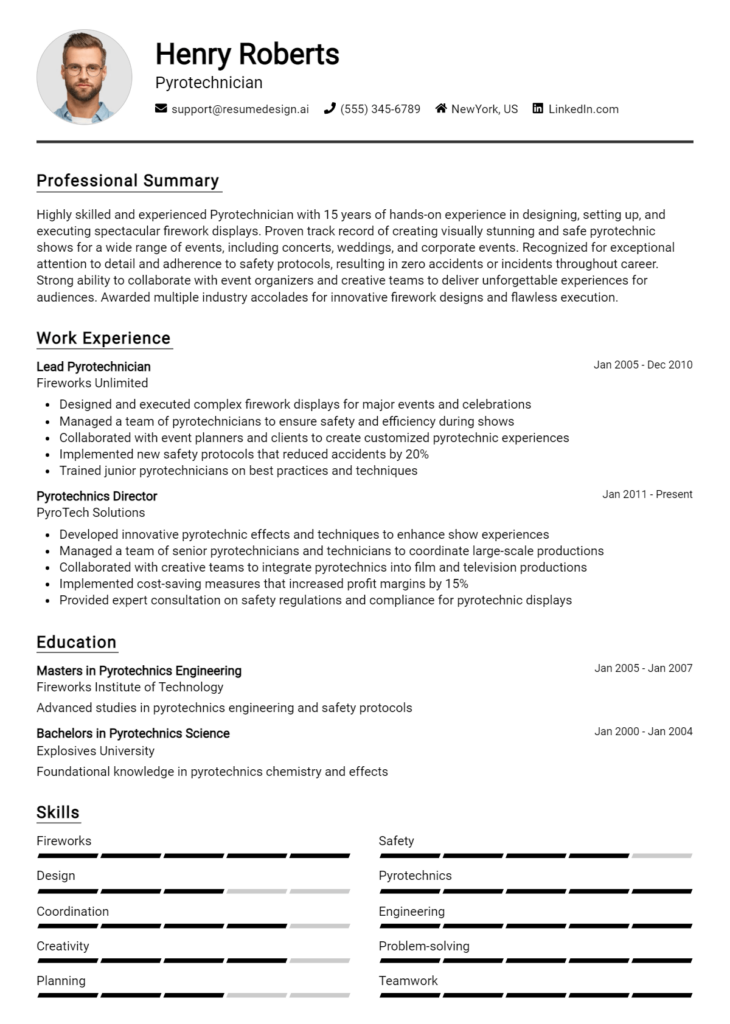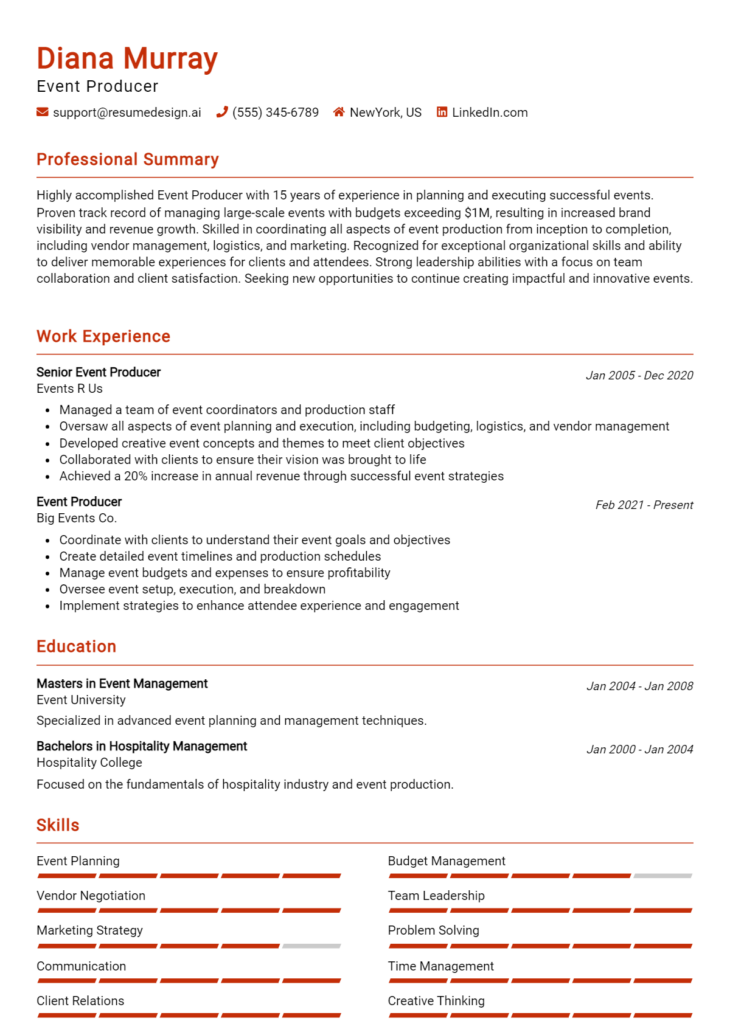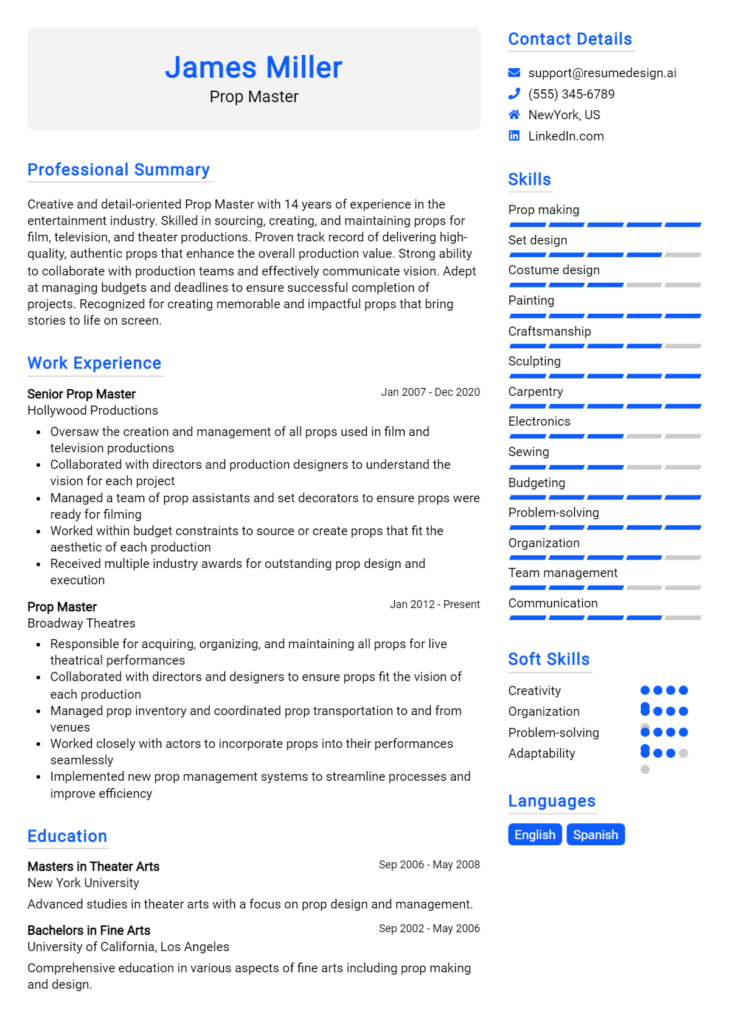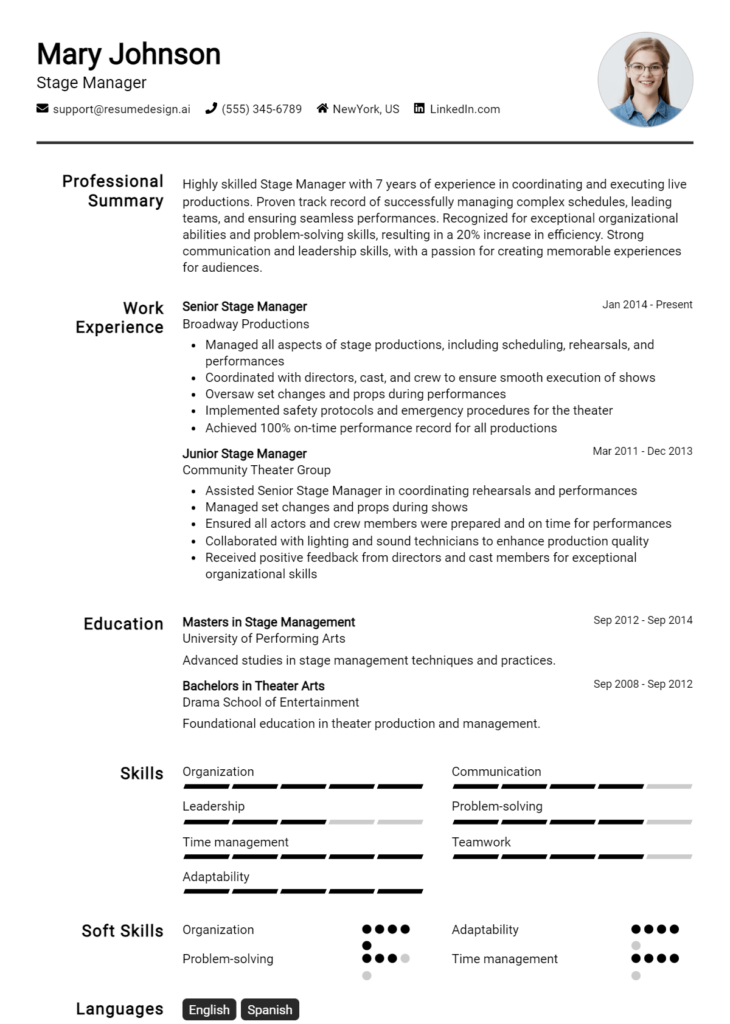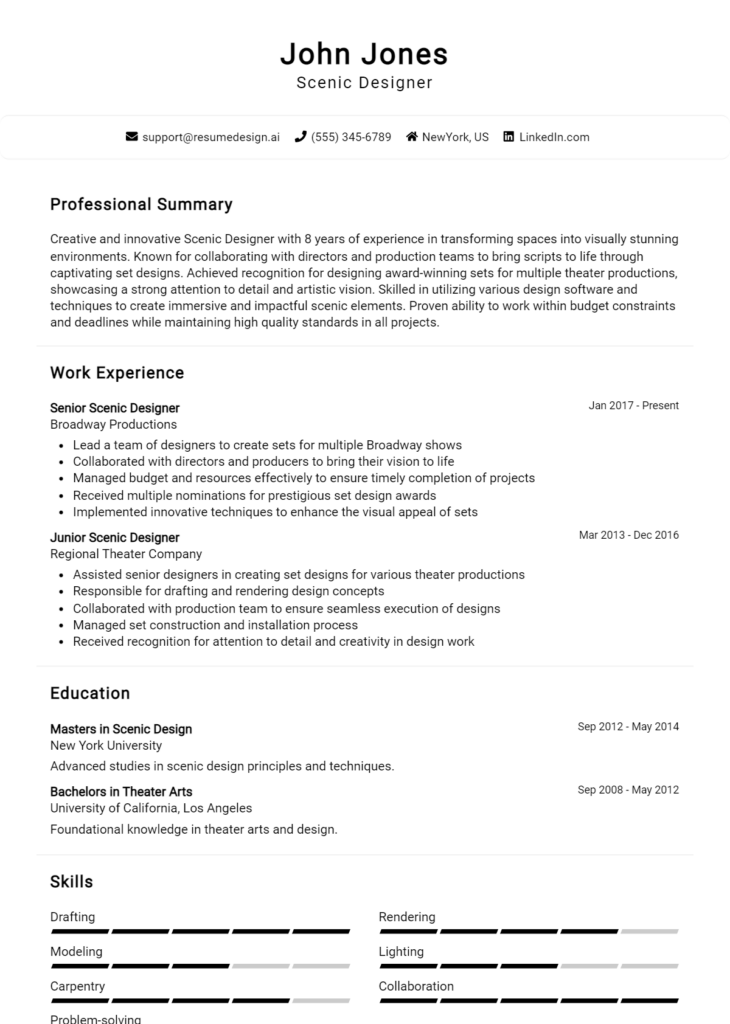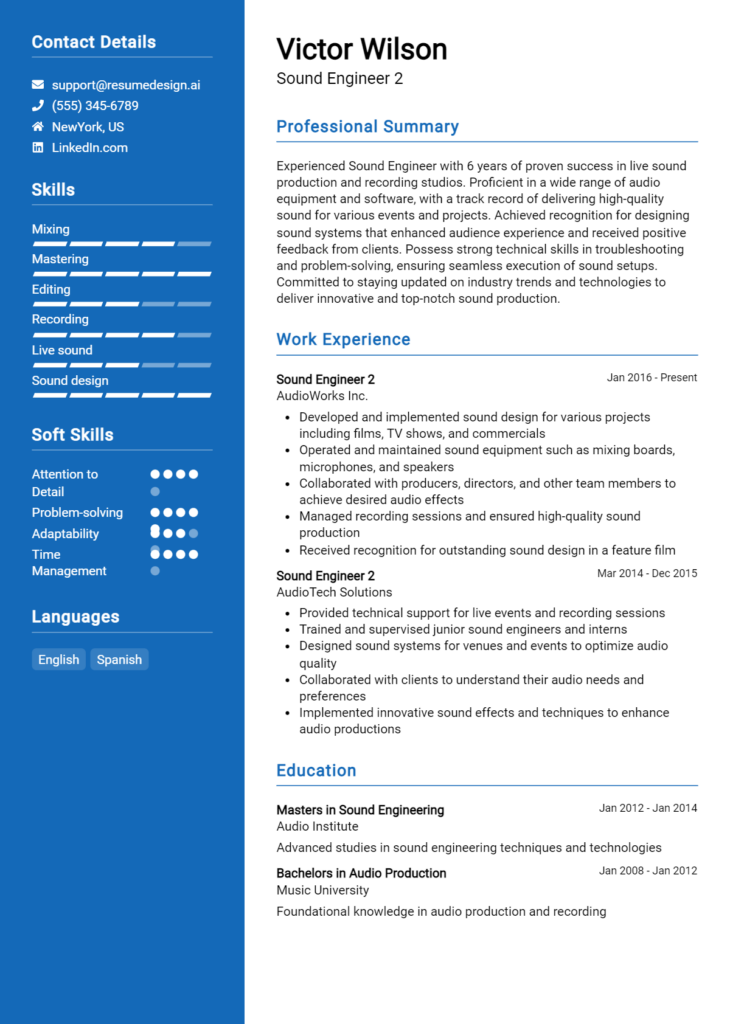Rigging Specialist Core Responsibilities
A Rigging Specialist plays a crucial role in ensuring the safe and efficient movement of heavy loads within various industries, bridging the gap between engineering, operations, and safety departments. Key responsibilities include designing rigging plans, inspecting equipment, and coordinating with team members to execute lifts. Strong technical knowledge, operational expertise, and problem-solving skills are essential for success in this role, contributing significantly to organizational efficiency and safety. A well-structured resume can effectively highlight these qualifications, showcasing a candidate's ability to enhance operational goals.
Common Responsibilities Listed on Rigging Specialist Resume
- Develop and implement rigging plans for complex lifts.
- Inspect and maintain rigging equipment for safety compliance.
- Collaborate with engineers and project managers to assess load requirements.
- Conduct risk assessments and safety audits for rigging operations.
- Train and supervise crew members on rigging techniques and safety protocols.
- Monitor the execution of lifts to ensure adherence to safety standards.
- Maintain accurate records of rigging inspections and maintenance.
- Provide technical support and problem-solving during rigging operations.
- Assist in the selection and procurement of rigging equipment.
- Ensure compliance with industry regulations and company policies.
- Communicate effectively with cross-functional teams to coordinate operations.
High-Level Resume Tips for Rigging Specialist Professionals
For Rigging Specialist professionals, a well-crafted resume serves as a critical first impression to potential employers. In an industry where precision and specialized skills are paramount, your resume must not only highlight your technical expertise but also showcase your achievements and contributions to previous projects. It's your opportunity to stand out in a competitive field, demonstrating how your unique abilities align with the specific needs of the role. This guide will provide practical and actionable resume tips tailored specifically for Rigging Specialist professionals, helping you present your qualifications in the best light possible.
Top Resume Tips for Rigging Specialist Professionals
- Tailor your resume to each job description by incorporating relevant keywords and phrases that match the requirements.
- Highlight your relevant experience in rigging operations, including specific projects and roles you've held within the industry.
- Quantify your achievements by using numbers to demonstrate the impact of your work, such as the number of successful rigging operations completed or efficiency improvements achieved.
- Emphasize industry-specific skills such as knowledge of rigging equipment, safety protocols, and load calculations.
- Include certifications or training relevant to rigging, such as OSHA safety training or specialized rigging courses.
- Utilize action verbs to describe your contributions and responsibilities, making your resume more engaging and dynamic.
- Showcase your problem-solving abilities by providing examples of challenges faced and how you overcame them in previous roles.
- Incorporate a professional summary at the top of your resume that succinctly summarizes your experience and goals in the rigging field.
- Keep your resume format clean and professional, ensuring it is easy to read and visually appealing.
By implementing these resume tips, Rigging Specialist professionals can significantly increase their chances of landing a job in the field. A tailored, achievement-focused resume not only highlights your qualifications but also positions you as a strong candidate who understands the industry's demands and expectations. Take the time to refine your resume, and you'll be better equipped to make a lasting impression on potential employers.
Why Resume Headlines & Titles are Important for Rigging Specialist
In the competitive field of rigging, where precision and expertise are paramount, a well-crafted resume headline or title plays a crucial role in capturing the attention of hiring managers. A strong headline serves as a powerful first impression, summarizing a candidate's essential qualifications in a succinct and impactful manner. It should be concise, relevant, and tailored specifically to the rigging specialist position being applied for, allowing candidates to immediately convey their unique skills and experiences that set them apart from other applicants.
Best Practices for Crafting Resume Headlines for Rigging Specialist
- Keep it concise: Aim for a headline that is no longer than 10-12 words.
- Be role-specific: Clearly indicate that you are a rigging specialist.
- Highlight key skills: Include relevant skills that are vital for the position.
- Use industry keywords: Incorporate terms that are commonly recognized in the rigging field.
- Showcase achievements: Mention notable accomplishments that demonstrate your expertise.
- Avoid jargon: Use clear language that is easily understandable to all hiring managers.
- Tailor for each application: Customize your headline based on the job description to align with the employer’s needs.
- Make it impactful: Use strong adjectives and action verbs to create a sense of urgency and importance.
Example Resume Headlines for Rigging Specialist
Strong Resume Headlines
"Experienced Rigging Specialist with 10+ Years in Heavy Lifting Operations"
“Certified Rigging Expert Specializing in Safety Compliance and Efficiency”
“Dynamic Rigging Professional with Proven Track Record in Project Management”
“Skilled Rigging Technician with Expertise in Load Calculations and Equipment Operation”
Weak Resume Headlines
“Just Another Rigging Specialist”
“Looking for Rigging Jobs”
The strong headlines are effective because they immediately communicate the candidate's experience, skills, and specific focus within the rigging field, creating a compelling case for why they are a strong fit for the role. In contrast, the weak headlines fail to impress due to their vagueness and lack of specificity, leaving hiring managers without a clear understanding of the candidate's qualifications or what they bring to the table. A powerful headline is essential in making a memorable first impression and distinguishing oneself in a crowded job market.
Writing an Exceptional Rigging Specialist Resume Summary
A resume summary is a critical component of a Rigging Specialist's application, providing a snapshot of the candidate's qualifications and experiences. It serves as the first impression that hiring managers receive, allowing them to quickly gauge the applicant's fit for the role. A well-crafted summary showcases key skills, relevant experience, and notable accomplishments, all tailored to the specific job description. By being concise and impactful, a strong resume summary increases the chances of capturing the attention of hiring managers and setting the stage for a successful application.
Best Practices for Writing a Rigging Specialist Resume Summary
- Quantify achievements: Use numbers and metrics to highlight your successes, such as projects completed on time or safety incidents reduced.
- Focus on relevant skills: Emphasize technical skills and industry knowledge that are specifically mentioned in the job description.
- Tailor the summary: Customize your summary for each job application to align with the requirements and expectations of the employer.
- Highlight certifications: Include any relevant certifications, such as OSHA or NCCCO, that enhance your qualifications.
- Showcase experience: Briefly mention years of experience and the types of projects or environments you've worked in.
- Use strong action verbs: Begin with powerful action verbs that convey your contributions effectively.
- Avoid jargon: Keep language clear and professional, avoiding overly technical terms that may not be understood by all hiring managers.
Example Rigging Specialist Resume Summaries
Strong Resume Summaries
Dynamic Rigging Specialist with over 8 years of experience in heavy lift projects, achieving a 30% reduction in downtime by implementing innovative rigging techniques. Proven track record in safety compliance with zero accidents reported in the last 5 years.
Detail-oriented Rigging Specialist skilled in crane operations and load calculations, successfully managed over 100 complex rigging operations, ensuring timely project completion and adherence to all safety regulations.
Certified Rigging Specialist with extensive experience in the construction and film industry, recognized for enhancing team efficiency by 25% through effective training programs on rigging safety and equipment usage.
Weak Resume Summaries
Experienced in rigging work and safety practices. I have worked on various projects and am looking for a new opportunity.
Rigging Specialist with some experience in the industry. I am a hard worker and a quick learner, hoping to contribute to a successful team.
The examples of strong resume summaries stand out because they provide specific details about achievements, skills, and experiences that directly relate to the role. They use quantifiable metrics to demonstrate success and convey a clear message about the candidate's capabilities. In contrast, the weak summaries lack specificity and measurable outcomes, making them appear generic and unremarkable. They fail to effectively communicate the candidate's qualifications, which can make it difficult for hiring managers to see the value they would bring to the position.
Work Experience Section for Rigging Specialist Resume
The work experience section of a Rigging Specialist resume is crucial as it provides a comprehensive overview of the candidate's technical skills, leadership capabilities, and ability to deliver high-quality products in challenging environments. This section not only highlights relevant job responsibilities but also showcases quantifiable achievements that align with industry standards. By detailing specific experiences, candidates can demonstrate their proficiency in rigging techniques, project management, and teamwork, which are essential for success in the field. It is imperative to present this information in a clear and impactful manner to capture the attention of potential employers.
Best Practices for Rigging Specialist Work Experience
- Focus on relevant rigging projects that demonstrate technical expertise.
- Quantify achievements with metrics, such as improved efficiency or reduced downtime.
- Highlight leadership roles in team settings, emphasizing collaboration and coordination.
- Use action verbs to convey a sense of accomplishment and initiative.
- Align experiences with industry standards and best practices to show familiarity with current trends.
- Incorporate specific technologies or methodologies that were employed in projects.
- Tailor the work experience section to match the requirements of the job being applied for.
- Include any certifications or training that enhance credibility in the field.
Example Work Experiences for Rigging Specialist
Strong Experiences
- Led a team of 10 rigging technicians in a high-stakes project, resulting in a 25% reduction in project completion time while maintaining safety standards.
- Implemented advanced rigging techniques that improved load capacity by 30%, contributing to a $500,000 increase in project revenue.
- Collaborated with engineers to design and execute a complex rigging system for a major event, ensuring seamless operation and zero incidents.
- Successfully trained and mentored junior riggers, enhancing team performance and reducing error rates by 15% over six months.
Weak Experiences
- Worked on various rigging jobs.
- Helped with team projects.
- Assisted in lifting heavy objects.
- Participated in safety meetings.
The examples provided illustrate a clear distinction between strong and weak work experiences. Strong experiences are characterized by specific, quantifiable achievements and demonstrate leadership and teamwork, showcasing the candidate's direct impact on projects. In contrast, weak experiences lack detail and measurable outcomes, failing to convey the candidate's true capabilities or contributions to previous roles. This highlights the importance of presenting work experience in a compelling and results-oriented manner.
Education and Certifications Section for Rigging Specialist Resume
The education and certifications section of a Rigging Specialist resume is crucial as it showcases the candidate's academic background and commitment to the field. This section highlights any industry-relevant certifications and specialized training, which are essential for demonstrating expertise in rigging practices, safety standards, and equipment handling. By providing details on relevant coursework and ongoing education, candidates can significantly enhance their credibility and align themselves with the requirements of the job role, making a strong case for their qualifications and dedication to continuous learning in a dynamic industry.
Best Practices for Rigging Specialist Education and Certifications
- Prioritize relevant degrees and certifications that directly relate to rigging and safety operations.
- Include any specialized training programs that are recognized within the industry.
- List certifications in order of relevance and recency to showcase current qualifications.
- Provide details about specific coursework that enhances understanding of rigging principles.
- Highlight advanced or niche certifications that set you apart from other candidates.
- Keep the format clear and concise, making it easy for hiring managers to identify key qualifications.
- Regularly update this section to include new certifications or completed training programs.
- Consider including any safety training certifications, as they are highly valued in the rigging profession.
Example Education and Certifications for Rigging Specialist
Strong Examples
- Bachelor of Science in Mechanical Engineering, XYZ University, 2020
- Certified Rigging Specialist (CRS) - National Commission for the Certification of Crane Operators (NCCCO), 2022
- OSHA 30-Hour General Industry Safety and Health Certification, 2021
- Advanced Rigging Techniques Course, ABC Training Institute, 2023
Weak Examples
- Associate Degree in Art History, ABC College, 2018
- Basic First Aid Certification (Expired, 2020)
- High School Diploma, DEF High School, 2015
- Outdated Crane Operator License (Not Renewed, 2019)
The strong examples listed above are considered relevant because they demonstrate a direct connection to the rigging field, showcasing both educational achievements and certifications that are current and recognized within the industry. In contrast, the weak examples reflect educational qualifications and certifications that do not pertain to the rigging profession, are outdated, or lack industry relevance, which diminishes the candidate's credibility and alignment with the job role requirements.
Top Skills & Keywords for Rigging Specialist Resume
As a Rigging Specialist, the importance of showcasing relevant skills on your resume cannot be overstated. This role demands a unique blend of technical abilities and interpersonal attributes to ensure that projects are executed safely and efficiently. Skills highlight your capability to handle complex rigging systems, navigate challenges, and collaborate effectively with team members. A well-crafted resume that emphasizes both hard and soft skills can significantly enhance your chances of landing an interview and ultimately securing the job. For more guidance on how to present your skills effectively, check out our skills section.
Top Hard & Soft Skills for Rigging Specialist
Hard Skills
- Proficient in rigging techniques and equipment
- Knowledge of load calculations and weight distribution
- Familiarity with rigging hardware (e.g., shackles, pulleys, hoists)
- Ability to read and interpret blueprints and technical drawings
- Experience with safety protocols and regulations (OSHA standards)
- Competency in using rigging software and technology
- Understanding of mechanical systems and their applications
- Ability to perform inspections and maintenance on rigging equipment
- Skilled in problem-solving and troubleshooting rigging issues
- Experience with aerial lifts and cranes
- Knowledge of fiber rope and wire rope characteristics
- Proficient in using hand and power tools related to rigging
- Understanding of electrical rigging systems
- Familiarity with stage rigging and entertainment production
- Ability to work at heights and in various weather conditions
- Experienced in emergency response and safety planning
Soft Skills
- Strong communication and teamwork abilities
- Excellent attention to detail
- High level of adaptability and flexibility
- Strong organizational and time management skills
- Problem-solving mindset
- Ability to work under pressure and meet deadlines
- Leadership qualities and the ability to mentor junior staff
- Strong observational and analytical skills
- Positive attitude and strong work ethic
- Dependability and reliability in high-stakes situations
- Capacity for critical thinking and decision-making
- Conflict resolution skills
- Empathy and emotional intelligence when working with a team
- Strong initiative and self-motivation
- Willingness to learn and develop new skills
- Ability to handle constructive criticism and feedback
- Commitment to safety and best practices
For further insights on how to effectively incorporate your work experience into your resume, consider emphasizing your accomplishments and contributions in previous roles.
Stand Out with a Winning Rigging Specialist Cover Letter
Dear [Hiring Manager's Name],
I am writing to express my interest in the Rigging Specialist position at [Company Name] as advertised on [where you found the job posting]. With over [X years] of experience in rigging for various projects, including film, television, and live events, I am confident in my ability to contribute effectively to your team. My extensive background in rigging techniques, safety protocols, and equipment operation has equipped me with the skills necessary to excel in this role and ensure seamless execution of complex rigging tasks.
Throughout my career, I have successfully collaborated with directors, producers, and other crew members to design and implement innovative rigging solutions that meet project specifications while adhering to strict safety standards. I have a proven track record of working on high-pressure projects, where attention to detail and quick problem-solving skills are paramount. My hands-on experience with a variety of rigging equipment, including cranes, hoists, and pulleys, allows me to adapt to different environments and challenges, making me a versatile asset to any production team.
I am particularly drawn to [Company Name] because of its commitment to excellence and innovation in the industry. I admire your recent projects, especially [mention any specific project or attribute of the company], and I am eager to bring my expertise in rigging to contribute to your continued success. I am excited about the opportunity to work alongside a talented team that values creativity and collaboration, and I am committed to ensuring that every project is executed with precision and professionalism.
Thank you for considering my application. I look forward to the possibility of discussing how my background, skills, and enthusiasms align with the needs of your team. I am eager to contribute to the exciting projects at [Company Name] and help elevate the quality of your productions through expert rigging solutions.
Sincerely,
[Your Name]
[Your Contact Information]
Common Mistakes to Avoid in a Rigging Specialist Resume
When crafting a resume for a Rigging Specialist position, it’s crucial to avoid common pitfalls that can hinder your chances of landing an interview. A well-structured resume highlights relevant skills and experiences while demonstrating your attention to detail and professionalism—qualities that are essential in the rigging industry. However, many candidates make mistakes that can detract from their qualifications. Here are some common errors to avoid:
Overloading with Technical Jargon: While it's important to showcase your technical skills, using too much industry-specific language can alienate hiring managers who may not be familiar with every term. Aim for clarity and balance.
Neglecting Safety Certifications: Rigging often involves strict safety protocols. Failing to highlight relevant safety training or certifications can signal a lack of awareness regarding industry standards.
Listing Irrelevant Experience: Including unrelated work experience can dilute the impact of your resume. Focus on roles that demonstrate your rigging skills, teamwork, and problem-solving abilities.
Poor Formatting: A cluttered or unorganized resume can make it difficult for hiring managers to find key information. Use clear headings, bullet points, and consistent fonts to enhance readability.
Generic Objective Statements: Using a one-size-fits-all objective can come across as insincere. Tailor your objective to reflect your specific interest in the rigging field and the company you are applying to.
Ignoring Quantifiable Achievements: Avoid vague descriptions of your previous roles. Instead, include quantifiable achievements that showcase your contributions, such as the number of projects completed or efficiencies gained.
Failing to Tailor the Resume for Each Job: Sending the same resume for every application can be detrimental. Customize your resume to align with the job description, emphasizing the skills and experiences that match the specific requirements.
Omitting Contact Information: While it may seem basic, forgetting to include your contact information or making it difficult to find can prevent employers from reaching out. Ensure your name, phone number, and email are prominently displayed.
Conclusion
As a Rigging Specialist, your expertise in handling the intricate systems that support heavy loads is crucial to the success of various projects in industries such as construction, film, and theater. Throughout this article, we explored the vital skills required for this role, including knowledge of rigging equipment, safety protocols, and the ability to work collaboratively with other professionals on site. We also discussed the importance of certifications and continuous training to stay updated with industry standards.
In conclusion, if you’re looking to advance your career as a Rigging Specialist, it's essential to have an impressive resume that highlights your skills and experience effectively. Take the time to review your Rigging Specialist Resume and ensure it reflects your qualifications and achievements.
To assist you in this process, consider utilizing the following resources:
- Explore a variety of resume templates to find a design that suits your style.
- Use our resume builder to create a polished and professional resume efficiently.
- Check out resume examples for inspiration and guidance on what to include.
- Don’t forget to craft a compelling cover letter with our cover letter templates to accompany your resume.
Take action today and elevate your job application materials to stand out in the competitive field of rigging!

